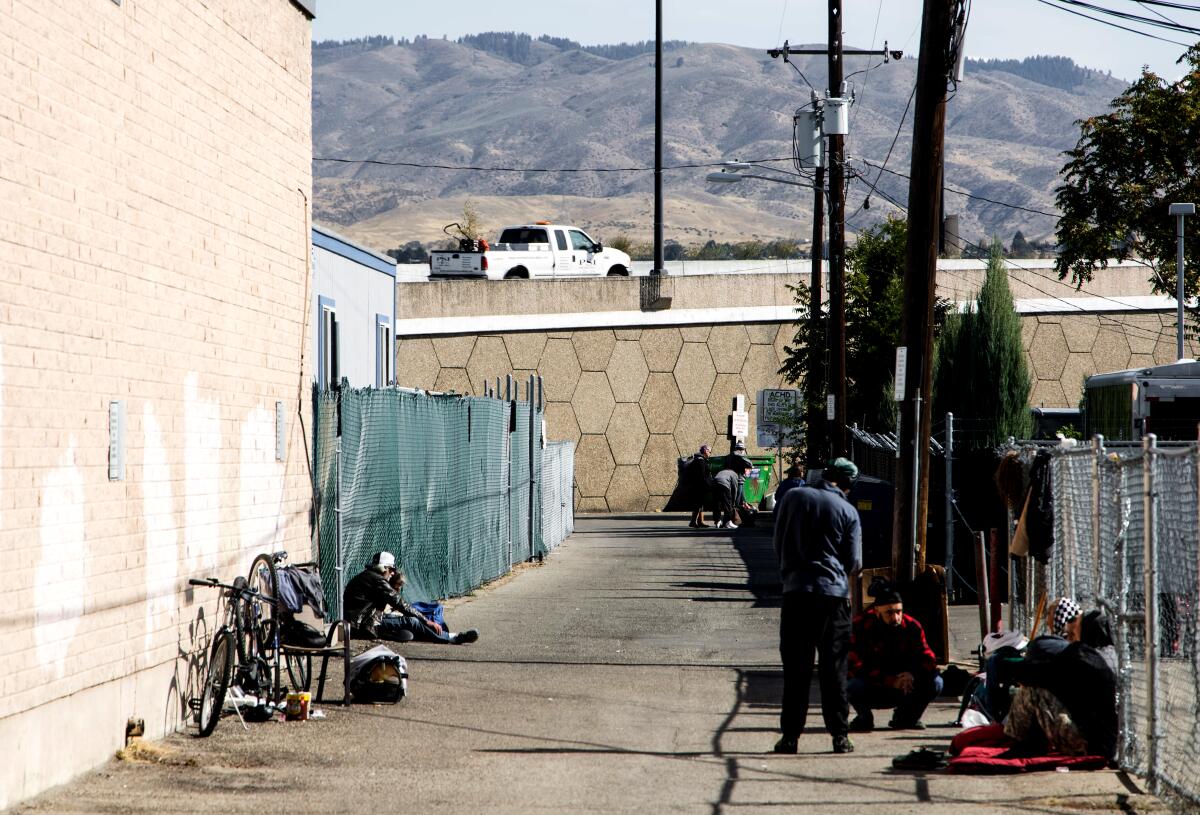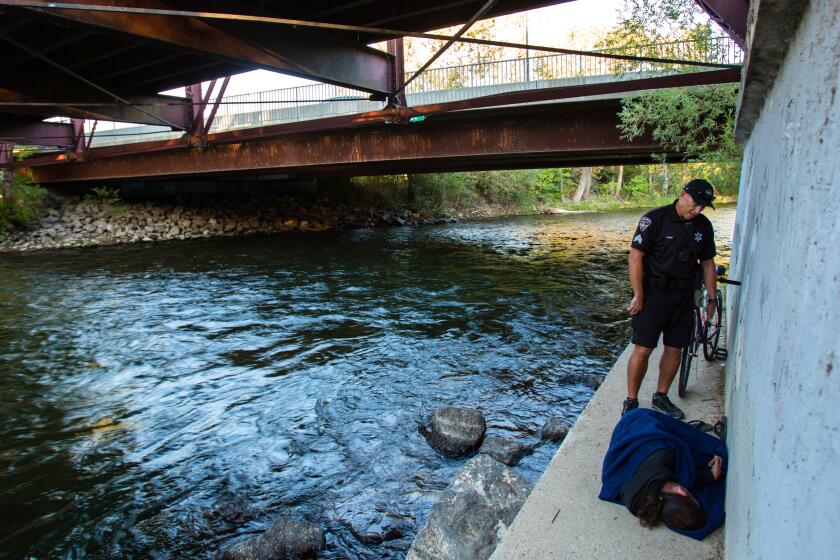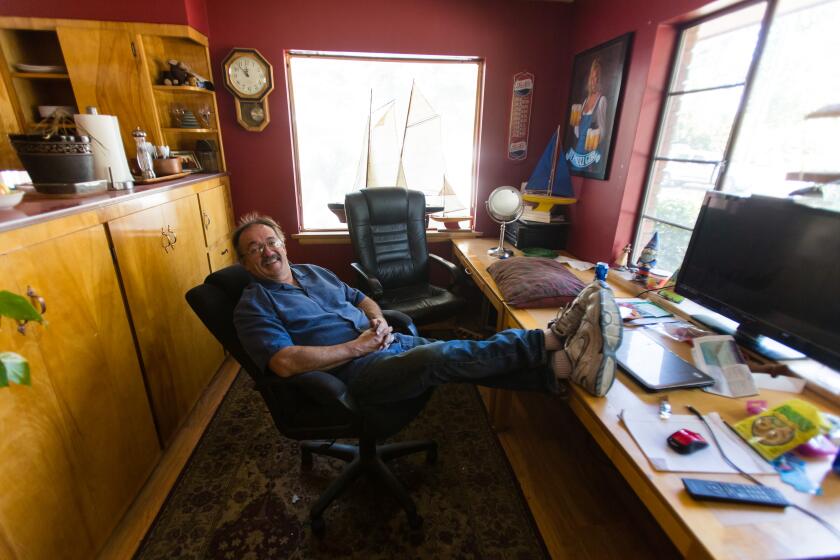Boise will settle controversial homeless camping lawsuit, change city code

- Share via
BOISE, Idaho — A settlement has been reached in Martin vs. Boise, the “camping lawsuit” that came from enforcement of an ordinance that banned people who are homeless from sleeping in public.
Under the agreement, the city of Boise, Idaho, will not cite or arrest people when no shelter is available, officials said Monday in a news release. The city will also amend ordinances that guide police citations for public sleeping, and the Boise Police Department will undertake additional training to make sure people who are homeless aren’t cited when no shelter is available.
The settlement will cost Boise about $1.8 million, including $1.3 million to create overnight shelters or rehabilitate existing shelter spaces, $435,000 for the plaintiffs’ attorneys and $5,000 in damages to the plaintiffs.
The lawsuit was focused on a Boise ordinance, adopted in 1922, that banned people from sleeping in public places. The original lawsuit was filed in 2009 on behalf of Robert Martin and five other people who were then homeless or had been recently, who had been cited for violating the ordinance between 2007 and 2009.
The 9th U.S. Circuit Court of Appeals ruled in September 2018 that cities cannot prosecute people for sleeping on the streets if there is nowhere else for them to go, saying that violates the 8th Amendment and amounts to unconstitutional cruel and unusual punishment. The city later asked the U.S. Supreme Court to take up its appeal, but the court declined to hear it.
The 9th Circuit is the largest court of appeals, meaning that its ruling directly affects not only all of Idaho but also California, Oregon, Washington, Montana, Nevada, Arizona, Alaska and Hawaii. The decision was considered a victory by advocates for people who are homeless, but cities across the 9th Circuit have struggled to work within the ruling.
Boise is a midsize city with a manageable homeless population. But it is setting standards for how much bigger cities deal with homeless encampments.
“I am so happy and proud to see everyone’s hard work finally come together in such a way that will help so many people,” plaintiff Pamela Hawkes Duke said in the news release. “I am really looking forward to seeing what other cities come up with as time goes on, especially when the city of Boise will have laid down the foundation for what it could look like.”
The agreement is “a road map” to the dismissal of the remaining claims made against Boise, according to the release.
Eric Tars, legal director at the National Homelessness Law Center and a member of the team representing the plaintiffs, said in the release that the settlement is “a win for all residents of Boise” and “serves as a national model for how other communities should be implementing the decision.
“By getting homeless individuals off the streets and into housing or shelter, there will be no need to enforce any ordinances against them — housing, not handcuffs, is what ends homelessness,” Tars said.
The new ordinances, set to be voted on Tuesday night by the Boise City Council, would modify city code to say that a person would not be penalized if a shelter could not take that person in because of gender, sexual orientation, parental status or physical or mental needs.
Police would be required to confirm that a shelter has appropriate space for a specific person before issuing a citation. People who choose not to go to a shelter when space is available could still be cited.
“The codes remain available to the city as a tool to help prevent dangerous encampments in Boise,” Assistant City Atty. Scott Muir wrote in a memo to the council.
Howard Belodoff, one of the attorneys representing the plaintiffs, said in the news release that the settlement represents “the efforts of hundreds of homeless citizens of Boise.”
“The settlement requires the city to focus on services rather than the far more expensive punishment in the criminal justice system and incarceration in the Ada County Jail,” he said.
Bashing newcomers from California is a cyclical sport with a long history in the heart of Idaho’s Treasure Valley.
More to Read
Sign up for Essential California
The most important California stories and recommendations in your inbox every morning.
You may occasionally receive promotional content from the Los Angeles Times.















